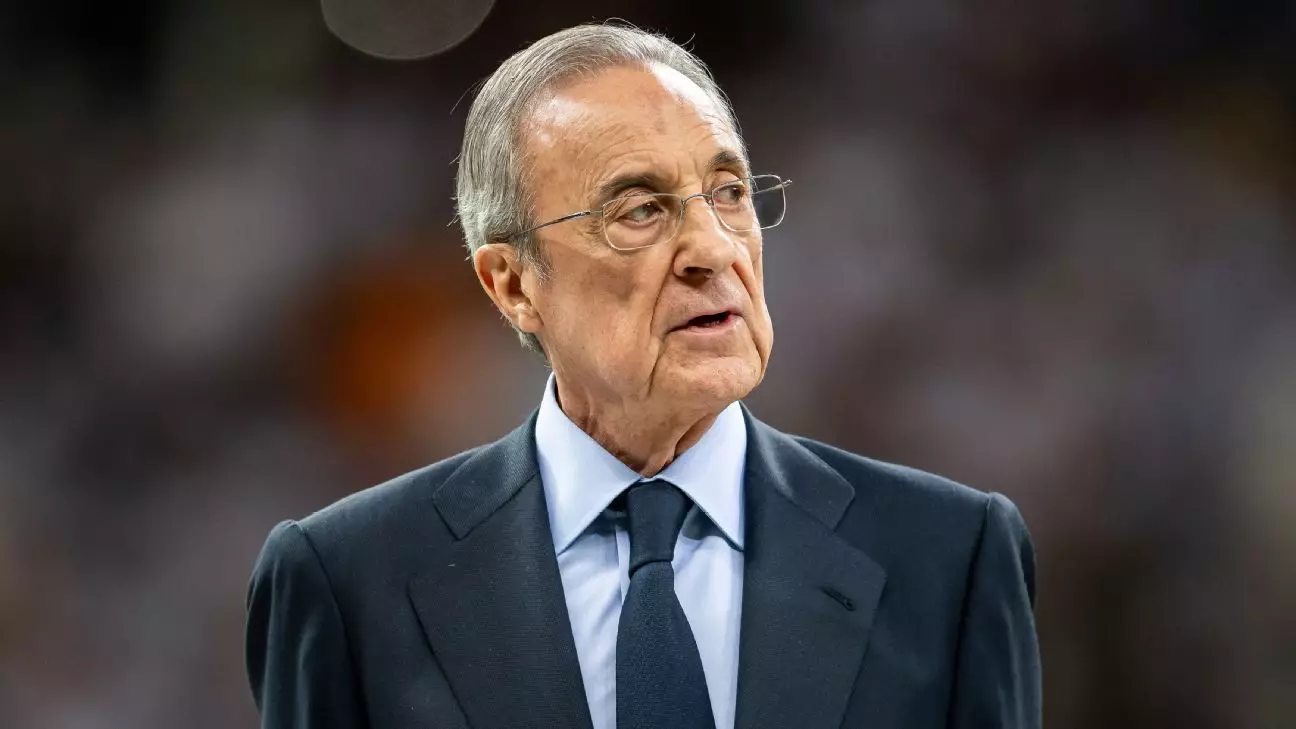Florentino Pérez, the president of Real Madrid, has made headlines recently by announcing a potential corporate restructuring of the club during an extensive address at the annual assembly. This move is considered significant, as it stands to address some critical financial and strategic challenges the club is currently facing. Unlike many of its competitors within Spain, Real Madrid remains a member-owned entity, a status that has both advantages and drawbacks in an evolving football landscape that increasingly favors public limited companies. This presentation has sparked discussions about the necessity of refreshing the club’s ownership structure to bolster financial independence and safeguard members’ interests.
The basis for Pérez’s call for this reorganization stems from a contentious dispute with LaLiga over a lucrative investment deal orchestrated by CVC Capital Partners. This deal allowed numerous clubs within the league to access substantial funding — approximately €2 billion in exchange for future broadcasting rights — a sum that was not afforded to Real Madrid. This disparity raises concerns about the sustainability and independence of the club’s finances. Pérez’s insistence on “defending ourselves from attacks on our financial wealth” highlights the urgency of reconsidering how the club navigates its financial landscape and engages in collective bargaining for television rights.
Preserving the Club’s Legacy and Financial Integrity
In his speech, Pérez asserted that the fundamental objective of this proposed reorganization would be to fortify the club’s financial framework, ensuring that Real Madrid’s income remains distinctly tied to its operations. The president championed a vision where Real Madrid’s resources remain intact and fully under the control of its members. His statement, “We’ll do everything necessary so that the club belongs to its members,” exemplifies an unwavering commitment to maintaining the ethos of member ownership, even when faced with modern pressures to yield to more corporate models.
While the specifics of the corporate reorganization remain sparse, Pérez has promised that he will introduce a detailed plan at the subsequent assembly where members could cast their votes on potential changes. This desire for transparency serves to reinforce members’ trust in the president’s leadership, a trust that must be maintained, especially in light of the growing complexity surrounding football financing and ownership dynamics.
Challenges and Opportunities on the Horizon
Amid these financial discussions, Pérez took the opportunity to address other pressing issues, including the recent omission of Vinícius Júnior from the 2024 Ballon d’Or shortlist. He voiced discontent regarding this decision, arguing for a reevaluation of how these prestigious awards are governed. By asserting that the Ballon d’Or should be independently managed and awarded to recognized players, Pérez is calling for a broader dialogue about accountability and meritocracy in football, paralleling the need for structural changes within the club.
Additionally, Pérez persisted in criticizing UEFA and the evolving structure of European competitions, repeating his advocacy for the Super League. His remark about wanting to avoid the fate of “Blockbuster” illustrates a broader vision of innovation and adaptation in an age where football cannot afford to stagnate. This perspective resonates with fans and stakeholders who seek to align Real Madrid’s storied past with a progressive future in a sport that is rapidly changing.
Pérez’s initiatives to rethink the ownership structure of Real Madrid are not merely reactionary; they are a strategic effort to safeguard its legacy in an increasingly challenging landscape. By seeking to protect the club’s financial assets and reinforce its member-controlled foundation, Pérez is not just addressing immediate concerns but is also laying down the groundwork for a more resilient and robust Real Madrid. The call for members to have a say in the club’s future will resonate well in the hearts of fans, especially as they navigate the complexities of modern football. Ultimately, Real Madrid stands at a crossroads, with the potential to redefine its operational paradigm in a manner that honors its illustrious history while ensuring a secure and vibrant future.

Leave a Reply